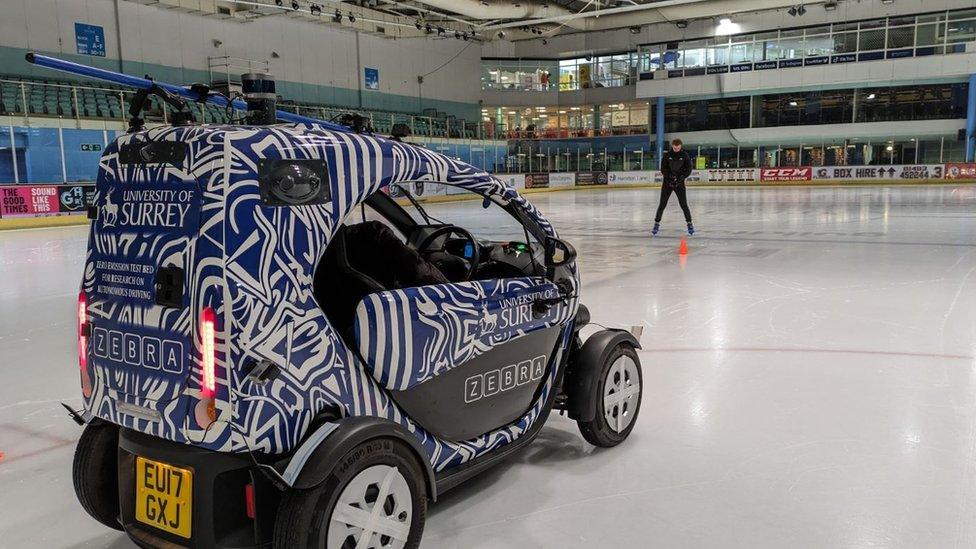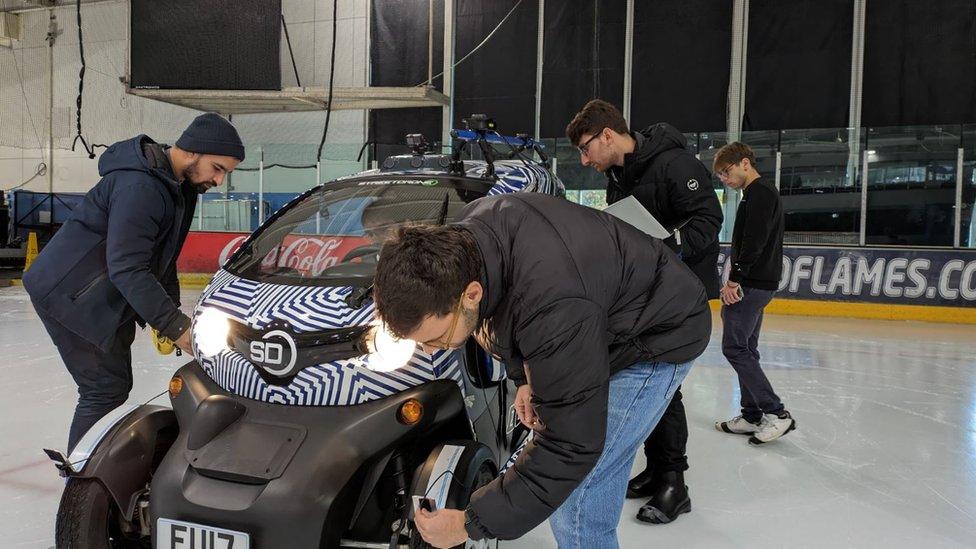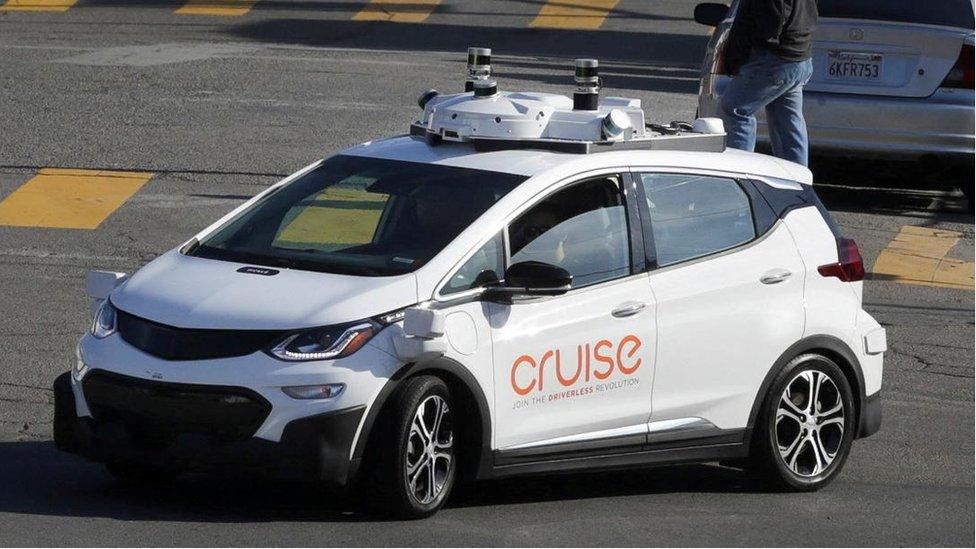Guildford: Ice rink used to test anti-skidding on AI car
- Published

The University of Surrey says trials on ice of its driverless car were a 'huge success'
An ice rink has been used to test anti-skidding on a car powered by artificial intelligence (AI).
University of Surrey researchers brought the driverless vehicle to Guildford Spectrum for a trial which they declared a "huge success".
The car drove around for 90 minutes to test traction control and "gathered more data than expected", they added.
The AI system senses when wheels are spinning too quickly and adjusts the power accordingly.
The technology was tested on the University's ZEBRA car - which stands for Zero Emission test Bed for Research on Autonomous driving.
The team is using AI to develop a way of preventing skidding in icy or wet conditions.
Carmine Caponio, a researcher in automotive engineering at the University of Surrey, said: "Our system appeared to work very well, and we must now analyse our data and prepare for further tests.
"It is highly unusual to be able to test technology on ice like this outside of large industrial companies - so to have a facility like the Spectrum available to us is a real privilege."

Researchers hope to carry out more tests on ice of the driverless car in early 2024
By using its driverless function, the researchers were able to more accurately control the vehicle's acceleration, enabling more precise, consistent tests.
Mario Mihalkov, researcher at Surrey's Centre for Automotive Engineering, said: "We hope our findings will be of great interest to car makers - and can help make driving safer in slippery conditions for millions of drivers."
The team hopes to return to the rink for more tests in early 2024.

Follow BBC South East on Facebook, external, on X, external, and on Instagram, external. Send your story ideas to southeasttoday@bbc.co.uk, external.
Related topics
- Published14 November 2023

- Published28 September 2023

- Published17 October 2023

- Published28 August 2023
